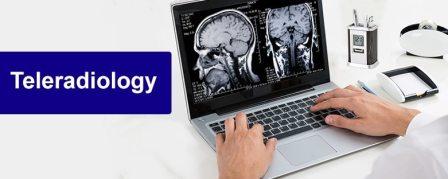
Bosnia and Herzegovina, a nation renowned for its rich cultural heritage and stunning landscapes, is undergoing a healthcare revolution at the heart of the Balkans. Access to specialized medical services, especially radiological diagnostics, has often been a challenge, particularly in remote and underserved areas. However, a transformative change is taking place with the introduction of teleradiology services, reshaping healthcare in the heart of the Balkans. In this article, we explore how telemedicine, with teleradiology as its cornerstone, is revolutionizing healthcare in Bosnia and Herzegovina.
Healthcare Challenges in Bosnia and Herzegovina
Bosnia and Herzegovina’s diverse terrain, from urban centers to remote communities, has consistently posed healthcare challenges. Ensuring access to advanced medical services, including radiological diagnostics, has been an ongoing concern.
Telemedicine: A Healthcare Revolution
Telemedicine, with teleradiology as a crucial component, is driving a healthcare revolution in Bosnia and Herzegovina. Teleradiology involves the remote interpretation of medical images, such as X-rays, CT scans, and MRIs, by specialized radiologists. The integration of teleradiology services is reshaping healthcare delivery and addressing the diagnostic needs of the nation.
The Telemedicine Revolution
Here’s how telemedicine, with teleradiology services at its core, is revolutionizing healthcare in Bosnia and Herzegovina:
- Expanded Access to Diagnostics: Telemedicine is extending high-quality radiological diagnostics to patients throughout the country, ensuring that even those in remote and underserved areas have access to essential medical services.
- Timely Diagnoses: In healthcare, timing is often critical, and teleradiology significantly shortens the duration between image acquisition and diagnosis. This is particularly vital in a country with geographical diversity and varying healthcare infrastructures.
- Access to Specialist Radiologists: Not every healthcare facility in Bosnia and Herzegovina has in-house radiologists. Teleradiology bridges this gap by connecting these facilities with a network of specialized radiologists who provide expert interpretations of medical images, enhancing the overall quality of care.
- Cost-Efficiency: Establishing and maintaining advanced radiology equipment can be a financial challenge for many healthcare facilities. Telemedicine promotes resource-sharing, making equipment more accessible and cost-effective.
Data Security and Privacy
In healthcare, safeguarding patient data and privacy is a paramount concern. Telemedicine services in Bosnia and Herzegovina are designed with stringent protocols to ensure the confidentiality and security of patient information during transmission and interpretation.
Challenges and Considerations
While telemedicine offers significant benefits, there are challenges to address, including regulatory compliance, the need for a reliable technological infrastructure, and the protection of patient data.
The Future of Healthcare in Bosnia and Herzegovina
As technology continues to advance, the future of healthcare in Bosnia and Herzegovina looks promising. The integration of telemedicine, with teleradiology services as a vital component, is expected to continue expanding healthcare accessibility, improving diagnostic quality, and reshaping the healthcare landscape.
Conclusion: A Healthcare Revolution
Telemedicine, with teleradiology services leading the way, is not just a technological advancement; it is a healthcare revolution in the heart of the Balkans. This progressive step reflects the nation’s commitment to providing top-quality care and advanced diagnostics to all its citizens, regardless of their geographical challenges.
In summary, telemedicine is revolutionizing healthcare in Bosnia and Herzegovina, ensuring that quality healthcare is accessible to all, even in the most diverse and challenging regions of the country.
Service Areas:- Germany – Berlin (capital), Hamburg, Munich (München), Cologne (Köln), Frankfurt, Stuttgart, Düsseldorf, Dortmund, Essen, Leipzig, Bremen, Dresden, Hanover (Hannover), Nuremberg (Nürnberg), Duisburg.
